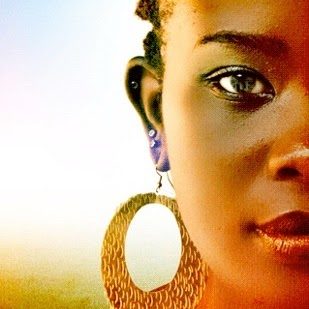Back in 2009, some journalist -perhaps trying to make her story about “the pearl of Africa” land some eyeballs- stated that Uganda was “a place where cell phones could outnumber light bulbs.”
Now, that little nugget has morphed into the widely parroted factoid, that there are more mobile phones than bulbs in Uganda. It’s been cited in keynotes, presentations, maybe even helped advance some careers.
By 2010, we were being regaled with a UN statistic, that there are more people on earth with access to cellphones, than to toilets. It’s only upon digging deeper that one finds that the toilets benchmark for this factoid, is the flush toilet. Assumedly, it is the gold standard of toilets to access.
This particular statistic has been unleashed more specifically on India; though it is cited as both about the world in general, India specifically, and with pepperings of the country of Africa.
“It is a tragic irony to think in India, a country now wealthy enough that roughly half of the people own phones,” so many people “cannot afford the basic necessity and dignity of a toilet,” UN University director.
“Perhaps one day cell phones will bring to half the African population something else they lack — clean toilets.” The World Bank’s Chief Economist, MENA region.
Friends, it’s now 2016, and we are comparing mobile phone access to…drumroll please…toothbrushes.
.@musakalenga @facebook more People own Phones than toothbrushes in Africa ~ East Africa Digital @McKinsey pic.twitter.com/SNW9cy1O8C
— Aly-Khan Satchu (@alykhansatchu) August 4, 2016
I know there’s a dearth of data on the continent, but is it that bad, that it’s about toilets and toothbrushes, and bulbs as comparatives?
— Nanjira (@NiNanjira) August 4, 2016
Behold, the rush to quantity Africa, and indeed the “developing world”. We are our mobile phones, toilets, bulbs and toothbrushes.
Have pointed out severally how uncritical and condescending these kinds of comparatives are; even more unfortunate is we — as Africans, or “global Southerners” — tweet, ooh and aah at these nonsensical references.
So it seems the number of bulbs, for instance, is picked from household surveys, as this Ugandan who was just as tired of that uncritically trumpeted statistic about his country sought to investigate.
Other than to tingle the senses of those excited about “Africa rush 2.0″, what do such findings – flaunted and cited ever so excitedly – do for the perceptions of Africa, not just to the rest of the world, but also ourselves?
As someone rightfully asked, what logical policy conclusion does one draw from these stats? I mean…toothbrushes?
Am I too cynical to think this part of the bigger digital colonialism creeping upon us? Or the digital era’s version of Conrad’s Heart of Darkness?
One’s tingly senses are activated when one grows increasingly familiar with how such projects have worked to keep us in need, lacking.
Of toothbrushes, toilets and bulbs in Africa. And the mobile phone takeover.
I am the first to acknowledge that there is a dearth of data to help many actors make sense of the continent. This is more so in certain parts than others, such as the absence altogether, of Central Africa on many maps.
But for crying out loud, this has got to stop. What next, more mobile phones than coconut trees? (Oh snap, did I just inspire some Africa research “expert”?)
On mobile phones, we need a serious push back on the thinking/operational hypothesis that a mobile-first Africa will make for a digitally transformed continent aside from generating consumers for products that will predominantly be from elsewhere.
“For all our excitement about Silicon Savannah, most emerging market countries — including India — are rounding errors when we look at their share of global revenues on the app stores. Revenue is concentrated into a handful of markets that take the lion’s share back into their own countries, with local sales from local developers almost absent except for unique markets such as China, South Korea and Japan,” Winners and Losers in the Global App Economy.
No app will make up for a lack of political will.
So, for crying out loud, enough of these insulting comparatives. There simply is no other way to rationalise that kind of framing.
And as always, Africa is not a country. There is no buy one, get 53 free.
Just stop it.
PS: Some may also want to scroll through “On Writing about Tech in Africa“.
